While much of the advice about networking holds true for both men and women, women leaders need to take extra care to build their networks consciously. Even a brief conversation I had recently with a woman executive reveals the importance of a healthy network for a woman’s career success—and general life happiness and satisfaction. But how women leaders can build strong networks takes a differential focus, including different strategies.
In this blog, I’ll provide networking tips for women leaders. But first, why is networking so important for a successful career? Back to the conversation I had recently with a senior woman leader…
Why Is Networking So Important?
“What advice would you tell your younger self?”
Earlier this year I was talking to Deidre, the CFO of a healthcare organization just starting to come out from the other side of the pandemic. I asked her to reflect on this question and she didn’t hesitate in her response.
“I would spend more time with family and friends. And… I would tell myself to do more internal and external networking. I now understand that knowing people is half the battle.”
This is an insightful answer. And to this, I say YES and YES.
YES, there’s nothing more important than social connections to combat burnout and create a happy, satisfying, and overall healthier life. And YES, it is who you know that contributes to future success.
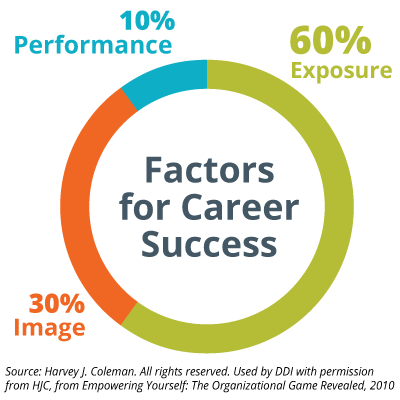
The Research Behind Networking
A study conducted with 118 companies revealed that “senior women executives attributed most of their advancement to having connections.” To add to this, according to management consultant Harvey Coleman, who has studied career success factors for over five decades, your network is not half the battle, but more than this—60%!
Coleman’s research shows that your hard work to deliver against the expectations of a role—your performance—is only 10% of what makes for career success. Instead, upward mobility comes from your image. This is how you differentiate yourself. It’s your personal brand, or what others will say about you when asked—this is 30% of career success.
Yet, we recognize that a personal brand image only carries weight if others know about it. This is why the largest factor for career success is exposure, which represents 60%. Exposure is who knows you, who has seen you in action, and who will speak on your behalf when you’re not in the room to support your decisions and your next promotion.
And for those who are disadvantaged in some way—for example, new graduates, people new to your company, or people (often women) who have had to put more focus on childcare and other matters in their personal life—it is getting much harder to build the network needed to grow a strong career.
What’s Different About the Way Men and Women Network?
Do men and women really network differently?
I was talking about this issue recently while driving with a friend who is also a woman executive. Her answer: an emphatic “no!”
And to some extent, it’s true. Most networking strategies to connect with people at work and outside of it hold true for men and women. However, there are a few unique things about women’s networks to pay attention to:
Socializing with the manager can offer unequal rewards.
According to a study by two economics professors from Harvard and UCLA, male employees who report to a male manager advance faster in their organizations. Compared to men who transitioned to a female manager, men who moved to a male manager had 13% higher pay two years after the transition. The same study showed that those male employees were significantly more likely to share work breaks with the male managers. On the other hand, there was no significant gender difference in how men or women fared under women managers, as the women managers tended to socialize equally.
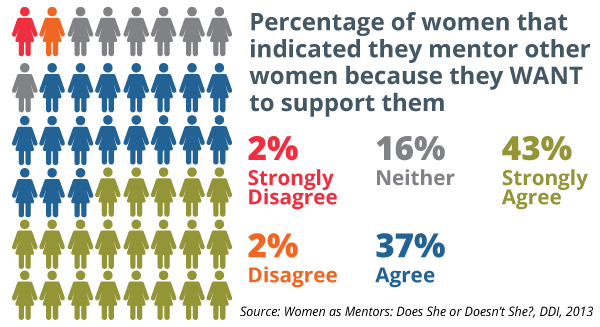
Women benefit from networking with other women.
While women need a strong network across gender, a 2019 study showed that women leaders got unique value out of networking with other women. In particular, the highest-achieving women benefitted from a close inner circle of a few other women who could provide support and gender-specific job advice as well as connections within their larger networks. Meanwhile, women who had male-dominated networks with weaker ties to women tended to be the lowest achieving. In short: Men and women need to have equally diverse and influential networks. But women do much better when they also have a close-knit group of women.
To add to this, DDI’s global research on mentoring women in the workplace shows that women want to support each other in the workplace, rather than rival each other.
Women hesitate to ask.
Women may be more hesitant than their male peers to ask for a favor from their networks if they cannot reciprocate the offer; it feels uncomfortably exploitative. As a result, women often soften their asks. As one article puts it: Women ask to have coffee; men call in favors. It’s not necessarily a bad thing that women look to provide reciprocity. However, it’s a habit to pay attention to as the hesitation to ask can cause women to fall behind.
Family obligations continue to present a time challenge.
Despite significant advances in sharing home and family obligations, studies still show that women with male partners tend to do the lion’s share of childcare and household work—even in households where women earn the higher salary. These additional obligations can significantly limit women’s ability to network outside of working hours. As a result, many women are pressed to find ways to connect efficiently during working hours as well as connect virtually when they can.
6 Types of Networks Every Woman Leader Needs
One of the most common questions I hear is about who should be in your network. But the better question is who should be in which network.
Ideally, you should think of six different kinds of networks in relation to the goals you are trying to achieve. Some people may be in multiple networks or move from one to another. But what’s important is that you’re being thoughtful in how you reach out to people at different times.
Here are the six types of networks you should consider:

1. Idea Network
When you are stuck and need advice, you can use an idea network to spark innovation and offer new ways to solve problems.

2. Influence Network
An influence network can help you move ideas through an organization. This type of network can also be used to build a group of colleagues who become advocates to help you harness resources and information to get things done before you ever get to a decision point.
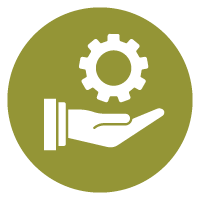
3. Development Network
A development network is a group of individuals who are invested in your growth. People from this type of network help you find new development opportunities for skills you need to be successful in your role. They can alert you of relevant industry conferences and learning events to attend. They can also connect you with someone in your industry who is an expert on a skill or subject matter you’d like to master.

4. Career Network
A career network is made up of people you can tap for career advice within and outside your company. This may be advice on how to put yourself in position for a promotion at your current company, or even letting you know there is a job at another organization that may be the perfect fit for you.
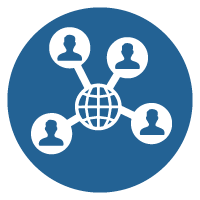
5. Social Network
A social network is made up of close relationships from which you can seek advice and support. With candor and wisdom, they can help you think through work issues, new careers, and life challenges—because we all have them.

6. Mentors and Sponsors
Mentors and sponsors are part of your network and provide considerable payoff (if you are lucky enough to have them). They provide critical experiences and exposure to help you connect with others. They can also help you grow your career, and most importantly, strengthen your engagement with your company and your connection with your team. A key difference is that mentors can come from any aspect of a woman’s life, where a sponsor directly advocates. In other words: Mentors speak to you. Sponsors speak about you.
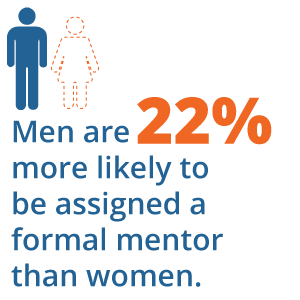
Unfortunately, as women take on more leadership responsibility and step into more senior roles, they are not getting the mentoring and sponsorship they need. According to DDI’s Leadership Transitions Report, men are 22% more likely to be assigned a formal mentor than women. Stepping up and transitioning into a new leadership position is a make-or-break moment for all leaders—and women and men leaders need equal support. Otherwise, that feeling of “sink or swim” causes additional stress and is a root cause of burnout and failure.
4 Tips to Activate Your Network in a Virtual World
Now you know what types of networks you need as a woman leader, but how can you activate your network? And how can you do it virtually now that many people are working remotely? Spoiler alert: Establishing and activating your network was difficult to begin with as a woman leader, but now it’s even more difficult in our virtual world.
Here are four tips to help you activate your network virtually:
1. Give before you get.
It’s important to think about not only the value you’d like to derive by adding someone to your network but the value you can provide in return. As I discussed earlier, the idea of reciprocity is important to women when it comes to asking for networking favors. That is, women may be more hesitant to ask for a favor from their networks compared to men, especially if they can’t offer something in return.
However, women, even early in their careers, have plenty to offer to others from a networking, mentoring, and coaching perspective. It is a mistake for young women leaders, or women new to leadership, to think their contributions pale compared to their longer-tenured colleagues.
2. Send a short note to a senior leader.
With remote work the norm, it can be easy to send a short note or chat on Teams, Slack, LinkedIn, etc. to your manager or a leader you aspire to work for about a work opportunity you are interested in. In the note, you can ask to be involved in projects outside of your normal line of work to get exposure to different people or parts of the organization, or to help you learn about new things you are interested in, or topics where you think you can add value.
Doing this shows you are curious about the business and willing to flex beyond your role to contribute. Additionally, this may help you gain visibility and prove you are worth the investment of a mentoring or coaching relationship.
3. Conduct 10-minute virtual feedback sessions.
You and your colleagues may be getting less feedback these days without spontaneous office conversations. To help close this gap, and to foster a feedback culture in a virtual environment, ask colleagues for feedback on something you’re working on that would take 10 minutes or less for them to digest. Make sure to mention you are looking for quick reactions and that you aren’t looking for them to send a long email in return.
Alternatively, when you see good work from a colleague, for example, a new website design or a helpful edit on a resource, proactively provide congratulations or feedback to help the work evolve. Making time for virtual feedback will not only reinforce good work, but also help to build connections with people you don’t normally work with. This can lead to other networking opportunities down the road.
4. When onboarding, book 30-minute virtual meet and greets.
When starting a new role, organize 30-minute virtual meetups with each person on your team and people in similar leadership roles across the organization. Before your meeting, connect on LinkedIn to get to know them a bit more and look to find a common point to break the ice during your 1:1 meeting.
These 1:1 meetings can help you feel more comfortable getting to know your new colleagues. They can also be a powerful way to create a professional link in your new role or organization, propelling your network further.
Paying It Forward
The power of networking is that it creates a wealth of opportunities, many of which you could not have predicted for yourself. The one caveat, however, is that you do not always have to say yes to everything. We all have a limited amount of time and energy and have to take care in investing them where it matters most.
But when you invest thoughtfully in building your relationships, the benefits will come back to you many times over.
Back to Deidre: in our conversation, she went on to say how much networking has impacted her own career success as a woman leader. She told me that giving back as a mentor, coach, and sponsor has, “helped my success enormously. It's helped me build winning teams. It's helped me build a culture where people know the leader cares about the talent, the people, and their futures.”
And that’s why she strives to create an environment that encourages mentors, sponsors, and coaches at all levels. She sees it as not just the right thing to do, but the smart thing to do.
Explore DDI’s Women in Leadership Program.
Dr. Tacy Byham is the CEO of DDI. While not leading strategic execution, she enjoys her direct engagements with clients to ignite change for women leaders, overcome burnout, and foster DEI. Her pandemic project was boldly refinishing her grandmother’s furniture from avocado green to poppy pink. As a novice DIY’er, she also learned that it’s an expensive mistake to drop your earbud in the paint can.
Topics covered in this blog

